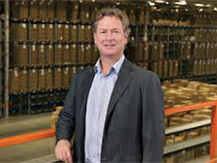Page 1: Abnormal
Page 2: Technology
Page 3: Solutions
Soluble Solutions for the Unsolvable
Because of the volatility and often erratic nature of tariffs these days, and because trade by definition is a two-way street, it can be both extremely tough coming up with solutions that has staying power. Even the most thoughtful and well-planned solutions can be thwarted by political opportunism or personal pique.
During a recent visit to the Netherlands, sponsored by the Netherlands Foreign Investment Agency, I talked to a number of logistics companies, as well as customs officials and port authority executives. Discussions inevitably turned to Brexit. What baffled everyone wasn’t just the prospect of Britain leaving the European Union, which is serious enough. It’s the complete lack of process details coming from London, understandable considering Brexit itself isn’t a done deal, let alone the technicalities. That includes everything from British customs clearance procedures to border-related infrastructure, which must be reestablished when and if Brexit takes effect.
No one in the know believes Britain will be able to transition out of the EU, without wholesale disruption. “Whatever people tell you, it’s going to be chaos,” said one banker.
Some shippers have decided to go for parallel logistics operations in Britain as well as in continental Europe, in anticipation of Brexit becoming a reality. But others adopt a wait-and-see attitude until the contours of Brexit become clearer.
Jurrie Jan Tap, chief sales officer at fashion and apparel logistics provider specialist Bleckmann, explained the concern as he showed a group of journalists around his facilities in Venlo, a logistics-heavy city near the German border. Clients are “getting nervous that [their current Europe-related operations] are not going to fly. ‘We need to have a Plan B,’” they said. “But most are still waiting. They have done their homework. They’re very nervous. But they don’t really move yet.”

Back in the US, Pittelli addressed the biggest part of the trade-related dilemma — unpredictability. What that means, she believes, is that both a supply chain and those working on that supply chain need to be resilient. “Anytime there’s a new announcement coming out, that can affect the business and throw everybody’s hard work right out the window,” she said. “People have to realize that, hey, ‘I can’t control the outside, I can only control my own environment.’”
Roel Van’t Veld is EU customs policy lead at the National Office of Dutch Customs, and a point person on Brexit coordination. His philosophy is applicable to just about everyone dealing with trade uncertainties. “We hope for the best, we prepare for the worst,” he explained.




